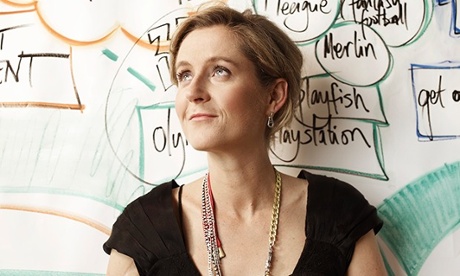
Martha Lane Fox used her speech in the House of Lords today to denounce the government's poor level of understanding and discourse on the Edward Snowden revelations.
Lady Lane-Fox, who joined the Lords as baroness of Soho in 2013, said the government had been "woefully quiet on the subject of liberty v security" and that the UK had lacked the rigorous debate that took place in December between US tech executives and Obama's administration.
Speaking before the 25th anniversary of the invention of the world wide web, Lane Fox also criticised the activity of US and UK security services as working to actively undermine encryption tools. "Allegations that GCHQ and the NSA worked to undermine encryption should caution anyone who trusts the web with their medical, financial or personal records," she cautioned.
In line with her work chairing the charity Go On UK, which aims to increase the number of Britons with internet access and skills, Lane Fox claimed that 11 million UK citizens lack basic internet skills.
"Of those, 50% are over 65 but 50% are of working age in a country where 90% of new jobs require basic online skills and many vacancies are only advertised online," said Lane Fox, adding that Go-On had estimated that addressing the adult skills gap could be worth £68bn to the UK economy.
Lane Fox said technology is changing at "mind-boggling" speed and urged the government to prepare itself for a host of complex societal and policy-related challenges, including the regulation of drones, driverless cars, cybercrime, wearable technologies, children and online identity, the intellectual property of a 3D-printed object and the potential of a Balkanised internet.
Referencing Berners Lee, who wrote his first proposal for what would become the world wide web in March 1989, Lane Fox said the computer scientist had wanted the world to ask what kind of web it wanted.
"The web has immense power – I find something remarkable and inspiring every day but I agree with Sir Tim that we need to talk about the web we want," she said. "We need to pause for breath, perhaps be more self-consciously aware of the next 25 years.
"We are sleepwalking into assuming that the platform underpinning so much of our daily life isn't changing."

